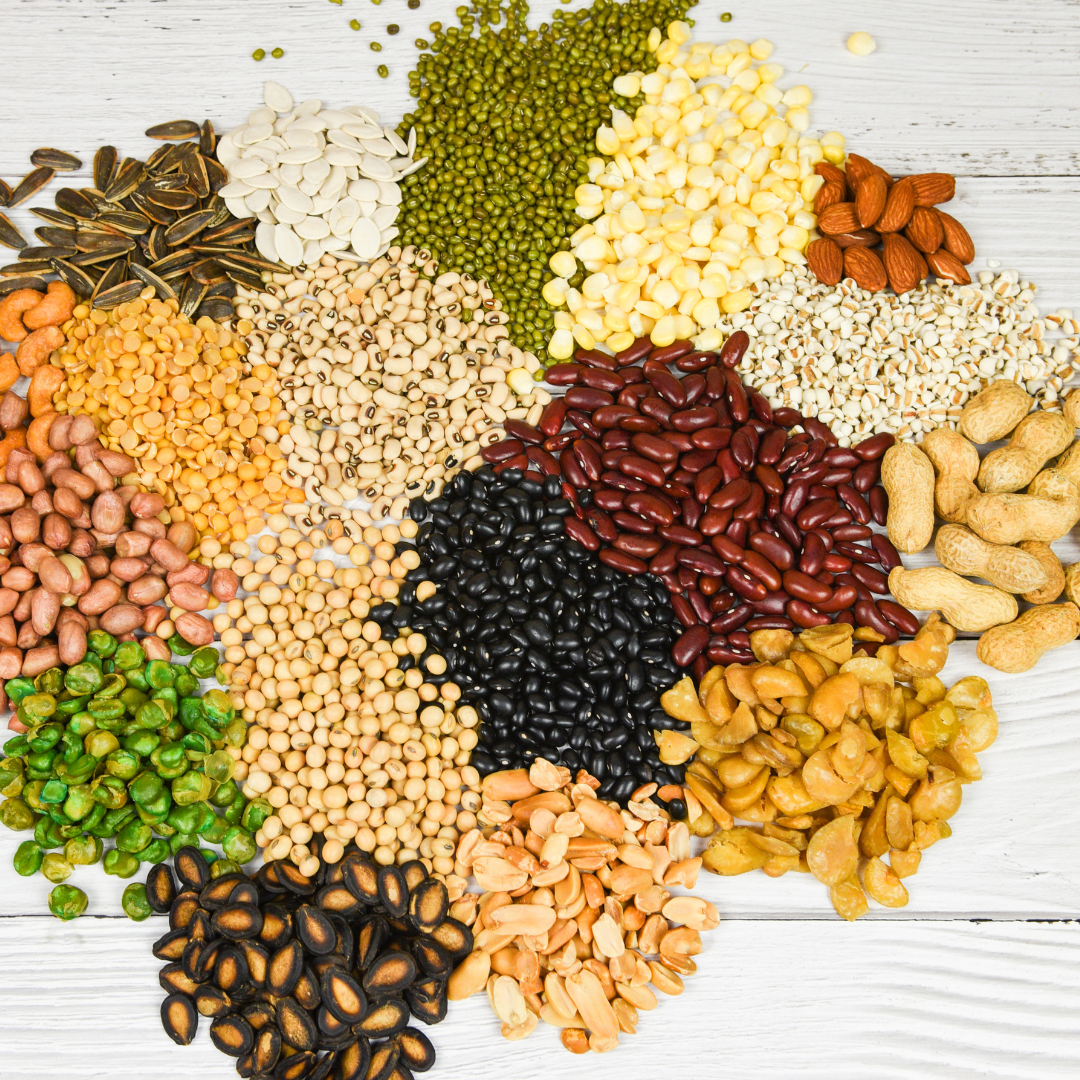
The Truth About Lectins
In recent years, the conversation around lectins has intensified, sparking debates and discussions in the world of health and nutrition. This newfound focus on lectins, a type of protein found predominantly in plant-based foods, has led to a surge in the popularity of low-lectin diets. Sources claim that these "sticky" proteins are the culprits behind a range of health issues, from intestinal discomfort and brain fog to more serious conditions like leaky gut and autoimmune diseases. But is this concern warranted, or are we overlooking the benefits of lectin-rich foods?
On one hand, lectins are valued for their high protein, fiber, and micronutrient content, including essential B vitamins. They also boast antioxidant properties, playing a potentially beneficial role in our diet. However, the other side of the coin presents lectins as a potential trigger to our gut health, which is why there has been a focus on discovering if there is a more complex interaction at play within our digestive systems.
The Low-Lectin Diet
The low-lectin diet has emerged as a response to the perceived threats posed by these proteins. Advocates of this diet suggest that lectins in common plant-based foods are responsible for a host of health issues. The argument hinges on the idea that lectins, due to their "stickiness," can disrupt the gut lining, leading to increased intestinal permeability – commonly known as leaky gut – and subsequently triggering autoimmune responses.
A Deeper Look at Gut Health and Lectins:
It's crucial to consider whether lectins are genuinely harmful or if the problem lies deeper within our gut health. The gut microbiome plays a pivotal role in how our bodies interact with various food components, including lectins. It's possible that an imbalanced or compromised gut microbiome might make certain individuals more susceptible to the adverse effects of lectins, rather than the lectins themselves being inherently harmful.

The Benefits of Lectins:
While the debate on lectins continues, it's important to remember the nutritional value of lectin-rich foods. Lectins are found in a variety of plant-based foods that are high in protein, fiber, and essential micronutrients, such as B vitamins. Some lectin-containing foods even possess antioxidant properties, which are crucial for combating oxidative stress and inflammation in the body. Eliminating these foods from our diet could lead to nutritional deficiencies and the loss of these beneficial properties. The lectin-free diet involves either reducing your intake of lectins or eliminating them from your diet. This may be beneficial for some people with food sensitivities, however it is also restrictive and eliminates many nutrient-dense foods — even those generally considered to be healthy!
Lectins are present in most plant foods but especially high in:
- Legumes, such as beans, lentils, peas, soybeans, and peanuts
- Nightshade vegetables, such as tomatoes and eggplant
- Dairy products, including milk
- Grains, such as barley, quinoa, and rice

Reducing Lectin Content in Foods:
For those concerned about lectin intake, there are ways to reduce the lectin content in foods without eliminating them entirely. Techniques such as soaking, sprouting, and cooking can significantly lower the lectin levels in plant-based foods, making them more gut-friendly while retaining their nutritional benefits.
Conclusion:
If you experience symptoms following the consumption of lectin-rich foods, it is advisable to delve into your gut health and pinpoint any potential imbalances through a comprehensive stool test. Simply eliminating lectins could be viewed as a "symptom suppression" strategy, and it may not address the fundamental root cause of your sensitivity to lectins. Therefore, while reducing or removing lectins from your diet is a prudent short-term measure, it is crucial to address and rectify the underlying issues responsible for your lectin sensitivity.

The truth about lectins is that they are not a clear-cut villain in our diets. While some individuals may experience negative effects, this does not warrant a blanket avoidance of all lectin-rich foods. Instead, a balanced approach, including proper food preparation techniques and an understanding of individual gut health, is key. As with any dietary choice, moderation and diversity are essential to maintaining a healthy and nutritious diet.
Did you know that a staggering 90% of the population is affected by food sensitivities? These sensitivities can cause a range of symptoms, and because they may not appear until up to 72 hours after consuming the offending food, identifying the cause can be challenging. Understanding the role of lectins in our diet is just the beginning. To truly tailor your diet to your body’s unique needs, consider taking the next step with our easy, at-home Food Sensitivity Lab Test. This comprehensive IgG Food MAP test measures your reaction to 190 common foods, herbs, and spices from various cuisines. Unlike many tests that only measure IgG4 molecules, our test provides a broader picture by measuring total IgG antibodies to food-based antigens and Candida. It's one of the most comprehensive food sensitivity tests available, designed to help you be the detective of your own body.

References:
Tsaneva M, Van Damme EJM. 130 years of Plant Lectin Research. Glycoconj J. 2020 Oct;37(5):533-551. doi: 10.1007/s10719-020-09942-y. Epub 2020 Aug 29. PMID: 32860551; PMCID: PMC7455784.
Vojdani A. Lectins, agglutinins, and their roles in autoimmune reactivities. Altern Ther Health Med. 2015;21 Suppl 1:46-51. PMID: 25599185.
Panacer K, Whorwell PJ. Dietary Lectin exclusion: The next big food trend? World J Gastroenterol. 2019 Jun 28;25(24):2973-2976. doi: 10.3748/wjg.v25.i24.2973. PMID: 31293334; PMCID: PMC6603809.

Follow Our Instagram For Exclusive Content





 د.إ / AED
د.إ / AED



Leave a comment